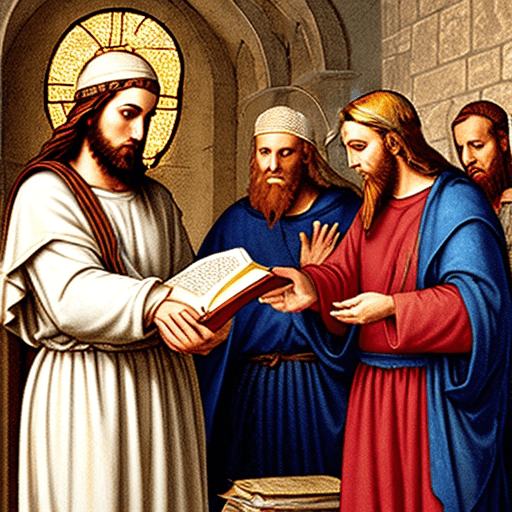The Council of Nicaea: Shaping Early Christianity

The Council of Nicaea, held in 325 CE, was a significant event in the early history of Christianity. It brought together bishops and leaders from various Christian communities to address theological controversies and establish foundational doctrines. In this post, we will explore the historical background, purpose, key decisions, and lasting impact of the Council of Nicaea.
I. Historical Background:
A. Arian Controversy: The Council of Nicaea was convened in response to the Arian controversy, centered around the teachings of Arius, a presbyter from Alexandria. Arius denied the full divinity of Yeshua, arguing that He was a created being, distinct from Yehovah the Father.
B. Constantine’s Role: Emperor Constantine, who had recently legalized Christianity, called for the council to restore unity and resolve the theological disputes that threatened the stability of the Church.
II. Purpose and Proceedings:
A. Doctrinal Clarification: The primary purpose of the Council of Nicaea was to address the nature of Yeshua’s divinity and His relationship to Yehovah the Father. The bishops sought to establish a clear understanding of Yeshua’s identity to combat the Arian heresy.
B. Nicene Creed: The council formulated the Nicene Creed, which affirmed the belief in Yeshua’s full divinity, stating that He was “begotten, not made, of one substance with the Father.” This declaration was intended to safeguard the orthodox understanding of Yeshua’s nature.
C. Other Matters: The council also addressed issues such as the dating of Easter, the treatment of apostates during the persecution, and the structure of the Church.
III. Key Decisions and Impact:
A. Condemnation of Arianism: The council condemned the teachings of Arius, declaring them heretical and affirming the orthodox understanding of Yeshua’s divinity. Those who did not adhere to the council’s decisions were excommunicated.
B. Doctrinal Unity: The Council of Nicaea played a crucial role in establishing doctrinal unity within Christianity. It provided a foundation for understanding the relationship between Yeshua and Yehovah the Father, shaping subsequent theological development.
C. Influence on Later Councils: The Council of Nicaea set a precedent for future ecumenical councils, shaping the trajectory of Christian theology. It laid the groundwork for subsequent councils, such as the Council of Constantinople, which further refined and expanded upon the Nicene Creed.
IV. Legacy and Controversies:
A. Enduring Importance: The decisions and theological formulations of the Council of Nicaea continue to hold significant importance in Christian theology, particularly regarding the nature of Yeshua’s divinity.
B. Trinitarian Doctrine: The council’s affirmation of Yeshua’s full divinity contributed to the development of Trinitarian theology, which recognizes the Father, Son, and Holy Spirit as distinct but inseparable persons within the one Godhead.
C. Historical Disputes: The council itself was not without controversy, and its proceedings have been subject to historical debates and interpretations. Some critics argue that political motivations influenced the decisions made at Nicaea.
Conclusion:
The Council of Nicaea was a pivotal event in the early history of Christianity, addressing the Arian controversy and establishing key doctrines concerning Yeshua’s divinity. Through the formulation of the Nicene Creed, the council solidified the orthodox understanding of Yeshua’s nature and laid the groundwork for subsequent theological development. While controversies and debates surround the council’s proceedings, its lasting impact on Christian theology and the affirmation of Yeshua’s divinity cannot be denied. The Council of Nicaea stands as a significant milestone in shaping the understanding of Yeshua and the foundational beliefs of the Christian faith.

